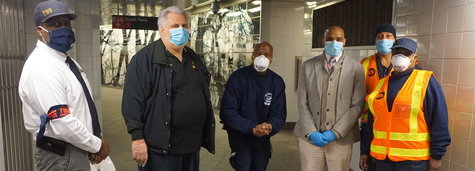By Pete Donohue
Until very recently, a friend of mine worked for a Manhattan-based company that didn’t contribute a dime towards its employees’ eventual retirement. It didn’t give across-the-board annual raises to the rank-and-file workforce - but reportedly was paid at least one top executive $1.5 million a year.The company regularly took bigger and bigger chunks out of employees’ paychecks for healthcare - up to $500 a month for an employee with a spouse and kids.
“It got so bad I thought I would walk into work one day wondering if they were going to charge me rent for my desk,” he said.
Welcome to corporate America unfettered by an adequately funded and well-organized union. It’s a purgatory that more workers, including public sector workers, may find themselves in. The U.S. Supreme Court is expected in June to prohibit pubic sector unions from compelling non-members to pay agency fees - even though they benefit from the union’s main activities: negotiating contracts with raises, healthcare benefits and work rules, and defending workers facing discipline or termination.
Most observers believe the five U.S. Supreme Court justices appointed by Republican presidents – Alito, Roberts, Scalia, Kennedy and Thomas – will form a majority and hand down an anti-union ruling. The case was brought to the Supreme Court by a conservative law firm, the Center for Individual Rights. The four justices appointed by Democratic presidents will likely write dissenting opinions favoring the unions’ position, including Elena Kagan, sister of former transit worker and top Local 100 staffer Marc Kagan, observers believe. (Marc Kagan was a top assistant to former Local 100 President Roger Toussaint before having a falling out with Toussaint in 2002.)
No one can say with certainty how this will all shake out. The only certainty is that unions have to start devising new and more effective strategies to promote unity in their organizations. Local 100’s executive committee already has begun a series of planning meetings. The threat must be met head on, President John Samuelsen said. Which brings me back to my friend’s former company. A union once represented its workers. But the company, decades ago, used a loopholes in bankruptcy laws to its advantage. It refused to negotiate and sign a contract, and refused to collect union dues.













